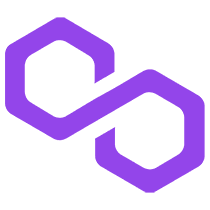What is Polygon Network?
Polygon (formerly known as Matic Network) is a Layer 2 scaling solution for Ethereum, designed to improve the scalability and usability of the Ethereum network. It is an open-source platform that provides a framework for building and connecting decentralized applications.
Polygon uses a Proof of Stake (PoS) consensus mechanism and is built on the Ethereum network. It is designed to provide faster and cheaper transactions compared to the main Ethereum network, while also maintaining compatibility with Ethereum smart contracts and other existing Ethereum tools and infrastructure.
One of the key features of Polygon is its ability to offer near-instant transactions and extremely low fees. This is achieved through its Layer 2 architecture, which allows transactions to be processed off the main Ethereum network, reducing the load on the network and making transactions faster and cheaper.
Polygon also provides an interoperable framework that enables developers to build and connect decentralized applications across different blockchain networks. This can help to reduce fragmentation in the blockchain ecosystem and enable greater collaboration and integration between different blockchain networks.
Polygon Network in gaming
Polygon (formerly known as Matic Network) has several use cases in the gaming industry, particularly in the area of non-fungible tokens (NFTs) and decentralized finance (DeFi) applications.
Polygon's high throughput and low transaction fees make it an attractive platform for developers to build games that leverage the use of NFTs, allowing players to truly own and trade their in-game assets. Polygon's scalability and fast transaction speeds can also enhance the overall gaming experience for players, by reducing lag times and increasing responsiveness.
Polygon's smart contract functionality also enables the creation of DeFi applications within games, such as decentralized marketplaces for buying and selling in-game assets, or lending and borrowing platforms for in-game currency.
One example of a popular Polygon-based game that uses NFTs is Aavegotchi, a game that combines DeFi and NFTs to create a play-to-earn experience. In this game, players can earn cryptocurrency by participating in various activities, such as breeding and trading NFTs.
Another example is Skyweaver, a collectible card game built on Polygon that leverages the use of NFTs to provide players with true ownership of their in-game assets. Skyweaver also allows players to trade their NFTs on decentralized marketplaces, creating a new economy within the game.
Overall, Polygon's high throughput, low fees, and smart contract functionality make it a promising platform for developers looking to create innovative and engaging games that leverage the benefits of blockchain technology.

